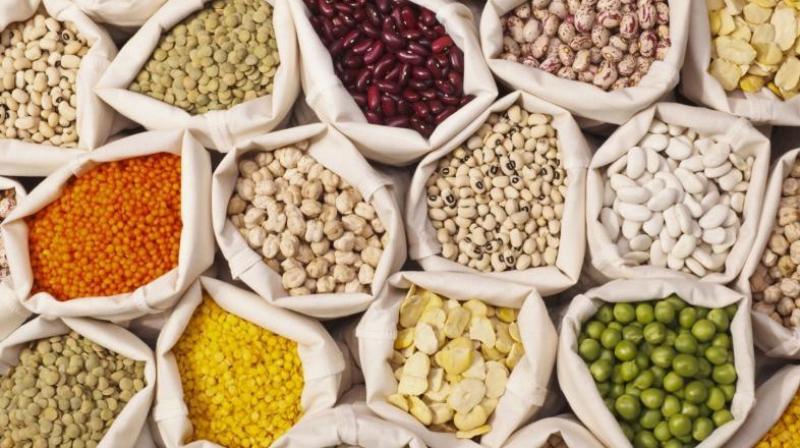Remove stock limit on pulses importers, wholesalers: IPGA
The country imported 5.8 million tonnes last fiscal as production was affected due to drought.

New Delhi: The government should remove stock limit on pulses importers, wholesalers and millers to ensure smooth supply of the commodity as well as start selling dals through ration shops to incentivise farmers to produce more, industry body IPGA has demanded in its Budget wish-list.
The government had in September extended the stockholding limits on pulses traders by one year till September 30, 2017, to check hoarding and control price rise. In its recommendations for the Union Budget of 2017-18, India Pulses and Grains Association (IPGA) Chairman Pravin Dongre said: "..importers, wholesalers and millers should be exempted from stock limits, both by quantity and time".
Stating that private trade has contracted about 3 million tonnes of pulses which is expected to arrive from September till December, he said: "With the existing stock limits imposed on the value chain, millers, traders, brokers and wholesalers are finding it difficult to maintain an efficient flow of supply through the pipeline".
IPGA also suggested inclusion of pulses in the public distribution system, saying that this would not only benefit the farmer to produce more but would also contribute in increasing the nourishment levels.
"To begin with, the government could look at certain states where the nourishment levels require inclusion of pulses on an urgent basis," Dongre said.
Citing benefits for inclusion of pulses in PDS, he said: with the government procurement being certain, it will prove to be a huge incentive for farmers to cultivate more pulses. IPGA has also demanded a dedicated scheme for modernisation scheme of dal mills.
"India has over 10,000 pulses mills and less than 10 per cent of the industry has adequate scale, modern technology and organised operations. The average milling capacity of small and medium-size mills is around 20 metric tonnes per day and for the larger mills around 100 metric tonnes per day," Dongre said.
"As a commodity business, scale of operations is critical to be able to add economic value to the industry. And, scale is not possible without modernisation," he added.
India is the largest producer of pulses but it is still dependent on import to meet the domestic demand. The country imported 5.8 million tonnes last fiscal as production was affected due to drought.

